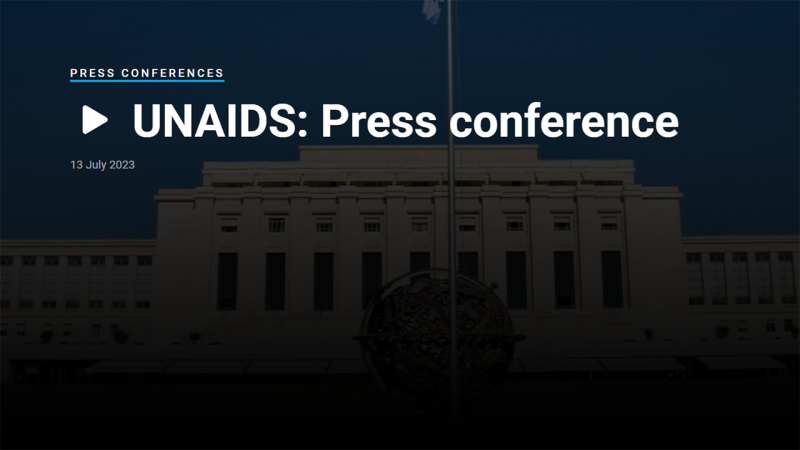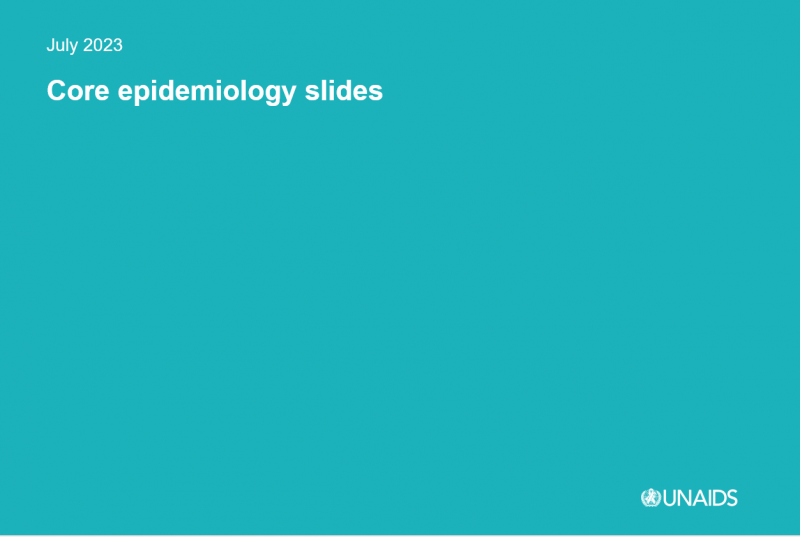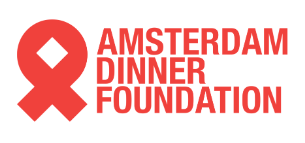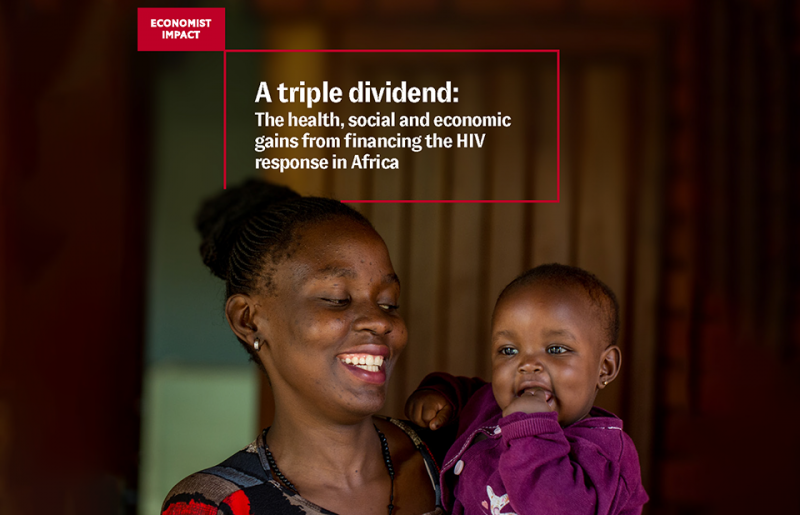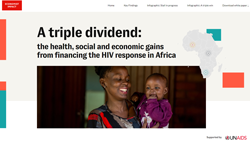GENEVA, 13 July 2023—A new report released today by UNAIDS shows that there is a clear path that ends AIDS. This path will also help prepare for and tackle future pandemics and advance progress towards achieving the Sustainable Development Goals. The report, ‘The Path that Ends AIDS’, contains data and case studies which highlight that ending AIDS is a political and financial choice, and that the countries and leaders who are already following the path are achieving extraordinary results.
Botswana, Eswatini, Rwanda, the United Republic of Tanzania, and Zimbabwe have already achieved the “95-95-95” targets. That means 95% of the people who are living with HIV knowing their HIV status, 95% of the people who know that they are living with HIV being on lifesaving antiretroviral treatment, and 95% of people who are on treatment being virally suppressed. A further 16 other countries, eight of them in sub-Saharan Africa, the region which accounts for 65% of all people living with HIV, are also close to doing so.
“The end of AIDS is an opportunity for a uniquely powerful legacy for today’s leaders,” said Winnie Byanyima, Executive Director of UNAIDS. “They could be remembered by future generations as those who put a stop to the world’s deadliest pandemic. They could save millions of lives and protect the health of everyone. They could show what leadership can do.”
The report highlights that HIV responses succeed when they are anchored in strong political leadership. This means following the data, science, and evidence; tackling the inequalities holding back progress; enabling communities and civil society organizations in their vital role in the response; and ensuring sufficient and sustainable funding.
Progress has been strongest in the countries and regions that have the most financial investments, such as in eastern and southern Africa where new HIV infections have been reduced by 57% since 2010.
Thanks to support for and investment in ending AIDS among children, 82% of pregnant and breastfeeding women living with HIV globally were accessing antiretroviral treatment in 2022, up from 46% in 2010. This has led to a 58% reduction in new HIV infections among children from 2010 to 2022, the lowest number since the 1980’s.
Progress in the HIV response has been strengthened by ensuring that legal and policy frameworks do not undermine human rights, but enable and protect them. Several countries removed harmful laws in 2022 and 2023, including five (Antigua and Barbuda, the Cook Islands, Barbados, Saint Kitts and Nevis, and Singapore) that have decriminalized same-sex sexual relations.
The number of people on antiretroviral treatment worldwide rose almost fourfold, from 7.7 million in 2010 to 29.8 million in 2022.
However, the report also sets out that ending AIDS will not come automatically. AIDS claimed a life every minute in 2022. Around 9.2 million people still miss out on treatment, including 660 000 children living with HIV.
Women and girls are still disproportionately affected, particularly in sub-Saharan Africa. Globally, 4,000 young women and girls became infected with HIV every week in 2022. Only 42% of districts with HIV incidence over 0.3% in sub-Saharan Africa are currently covered with dedicated HIV prevention programmes for adolescent girls and young women.
Almost one quarter (23%) of new HIV infections were in Asia and the Pacific where new infections are rising alarmingly in some countries. Steep increases in new infections are continuing in eastern Europe and central Asia (a rise of 49% since 2010) and in the Middle East and North Africa (a rise of 61% since 2010). These trends are due primarily to a lack of HIV prevention services for marginalized and key populations and the barriers posed by punitive laws and social discrimination.
Funding for HIV also declined in 2022 from both international and domestic sources, falling back to the same level as in 2013. Funding amounted to US$ 20.8 billion in 2022, far short of the US$ 29.3 billion needed by 2025.
There is an opportunity now to end AIDS by increasing political will by investing in a sustainable response to HIV through financing what matters most: evidence-based HIV prevention and treatment, health systems integration, non- discriminatory laws, gender equality, and empowered community networks.
“We are hopeful, but it is not the relaxed optimism that might come if all was heading as it should be. It is, instead, a hope rooted in seeing the opportunity for success, an opportunity that is dependent on action,” said Ms Byanyima. “The facts and figures shared in this report do not show that as a world we are already on the path, they show that we can be. The way is clear.”
In 2022, an estimated:
- 39.0 million people globally were living with HIV
- 29.8 million people were accessing antiretroviral therapy
- 1.3 million people became newly infected with HIV
- 630 000 people died from AIDS-related illnesses
UNAIDS
The Joint United Nations Programme on HIV/AIDS (UNAIDS) leads and inspires the world to achieve its shared vision of zero new HIV infections, zero discrimination and zero AIDS-related deaths. UNAIDS unites the efforts of 11 UN organizations—UNHCR, UNICEF, WFP, UNDP, UNFPA, UNODC, UN Women, ILO, UNESCO, WHO and the World Bank—and works closely with global and national partners towards ending the AIDS epidemic by 2030 as part of the Sustainable Development Goals. Learn more at unaids.org and connect with us on Facebook, Twitter, Instagram and YouTube.




